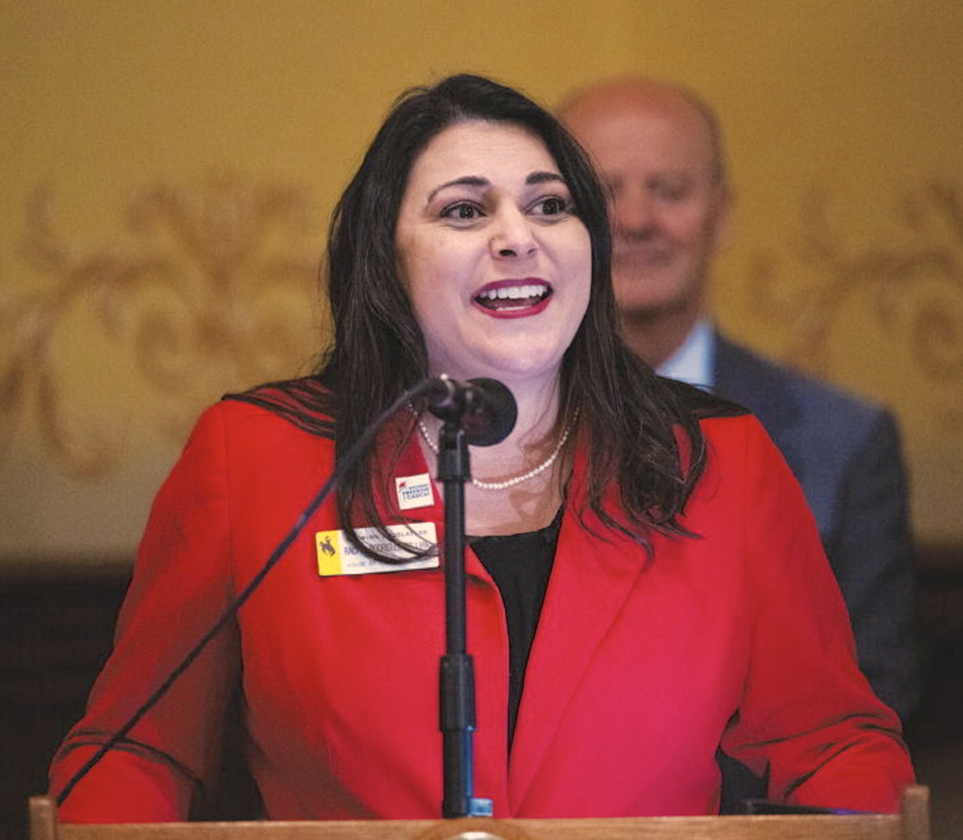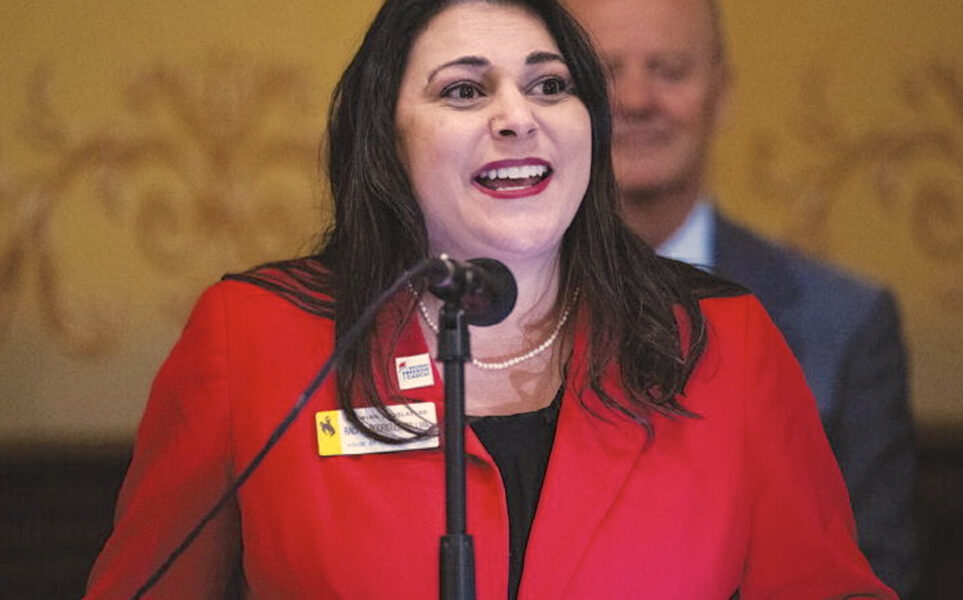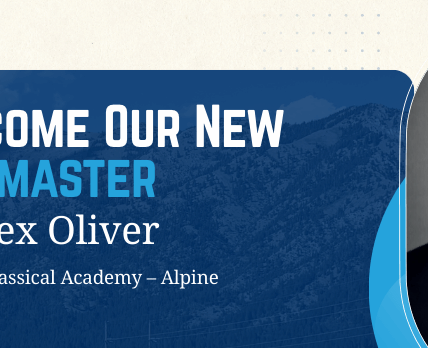
By Hannah Shields
Wyoming Tribune Eagle
Via Wyoming News Exchange
CHEYENNE — The 68th Wyoming Legislature is set to be sworn in next week, and both Gov. Mark Gordon and members of the Wyoming Freedom Caucus met with the media Tuesday to lay out their priorities for the upcoming legislative session.
In late December, the Freedom Caucus unveiled its ambitious “Five and Dime Plan” on its website.
The group of hardline Republicans promised to pass five key bills through the state House of Representatives — which they gained control of in the November general election — within the first 10 days of the 40-day session.
These bills include the following: requiring proof of Wyoming residency and U.S. citizenship in voter registration; invalidating driver’s licenses issued by other states to those who came into the country illegally; banning diversity, equity and inclusion programs in higher education; ending investment of state money in environmental, social and governance funds, and reintroducing a vetoed property tax bill from last year’s budget session.
Wyoming Freedom Caucus Chairwoman Rep. Rachel Rodriguez-Williams, R-Cody, told members of the media at the Capitol the plan “came about from a poll that was taken statewide.”
“The ideas are based on priorities that came from the people throughout the state of Wyoming, in which the Freedom Caucus is prepared to carry out in the House,” Rodriguez-Williams said.
When Gordon was asked earlier in the day what his thoughts were about the “Five and Dime Plan,” his sole remark was it’s “interesting stuff,” and that he looked forward to seeing what the caucus’ bills will bring.
Wyoming is the first state in the nation to have a Freedom Caucus- majority legislative chamber. Gordon noted Tuesday morning during his media conference that two-thirds of the state’s incoming legislative body are newly elected lawmakers, with many of them holding state office for the first time.
“I know that there may be differences of opinion on what we do coming forward. I know we may have some disagreements, but I’m really looking forward to working with everyone,” he said. “I am excited about this legislative session, as perhaps I haven’t been for a long, long time.”
Incoming House Speaker and Freedom Caucus member Rep. Chip Neiman, R-Hulett, said the Wyoming Freedom Caucus will navigate its newfound control of the House with “common sense” and “respect for the electorate,” and he promised to bring “bold policies that otherwise never would have seen the light of day.”
“Nobody here wants to throw bombs. Nobody here is throwing and creating hate and discontent amongst the Legislature,” he said. “What we’re here to do is to get the job done. The people have clearly given us a mandate.”
Freedom Caucus’ ‘2020 vision’
Apart from the five “key” bills Freedom Caucus lawmakers hope to pass in 10 days, there are several more priorities that are top of mind for the group of hardline Republicans.
Rep. Jeremy Haroldson, R-Wheatland, a founding Freedom Caucus member and next-in-line House Speaker Pro Tempore, said there are 15 other bills the group plans to push through in the first 20 days of the session, what he called the “2020 vision.”
For lack of time, Haroldson highlighted just three of the 20 bills the group plans to push through within the first four weeks of the session.
The first is a statewide repeal of gun-free zones.
“It’s time to remove soft targets and restore the Second Amendment rights of you, the people,” Haroldson said. “We have, for too long, allowed fear to drive, instead of policy to drive. We’ve allowed fear to drive instead of constitutional rights to drive.”
The repeal of gun-free zones legislation was first introduced last year during the 2024 budget session. It passed through the Legislature with widespread support in both chambers, but was later vetoed by Gordon, who viewed it as an infringement on local control.
However, the governor isn’t entirely against the idea of repealing gun-free zones.
In his veto message, Gordon encouraged officials in local school districts, community colleges and the University of Wyoming to “take up these difficult conversations again and establish policies that allow for the safe carry of concealed weapons within their facilities.”
Haroldson said a second priority in the “20-20 vision” is to protect women’s spaces. There are several bills filed for the upcoming general session that aim to restrict transgender people’s access to female-only facilities and women’s sports teams.
In the spring of 2022, a lawsuit was filed by several sorority sisters against their parent chapter of Kappa Kappa Gamma over the admittance of a transgender member, Artemis Langford. Three of the plaintiffs from the ongoing lawsuit spoke at the Freedom Caucus news conference, expressing their support for the bills aimed to restrict transgender people’s access to female-only spaces.
“These bills will not only help protect me and my sorority sisters behind me, but every single woman,” said Allison Coghan, one of the plaintiffs. “A woman should never have to fear using a public restroom. Young girls should never have to fear competing in sports. If women are ever going to be respected or successful in the world, they need these safe spaces to build that foundation.”
Universal school choice is the third priority Haroldson highlighted for the upcoming general session.
“It’s time that parents decide where their children are going to be educated, how their children are going to be educated, and how that funding is going to look,” Haroldson said. “We have a position and a place where this state puts a lot of money into education, but the problem is the money is not following the students.”
Property tax relief impacts
Revenue from property taxes funds city and county services, including K-12 education, local law enforcement and firefighters. Gordon said it’s important Wyoming residents “balance … their expectations” when it comes to choosing between more tax relief and the consequences of the impact on local city services.
In November, Wyoming voters passed a ballot initiative to create a separate residential class in the state’s tax structure.
“They made a big statement this year that we want the Legislature to have the ability to be able to make some changes in our residential property,” Gordon said. “They allowed the Legislature to set aside a fourth class, and so I look forward to seeing what the Legislature can do with that.”
Revenue Department Director Brenda Henson previously told the Wyoming Tribune Eagle that education eats up about 70% of every property tax bill. A 4% property tax increase cap on residential structures that went into effect this year lost the state approximately $13 million in education funding.
“Property taxes are absolutely essential to maintaining our schools,” Gordon said. “There’s a lot of discussion about being able to have school choice and a bunch of other options that are there, and that’s thrilling. … But the more we do this, the more expense there is to it. And so we’ve got to, you know, we’ve got to understand what all of those circumstances are.”
The Freedom Caucus promised to bring back a bill that creates a 25% homeowner property tax exemption off the first $2 million worth of fair market value. The bill includes a $125 million backfill from the state out of the general fund.
However, a citizen-led ballot initiative to slash property taxes for qualified Wyoming homeowners by 50% is set to go before voters in the 2026 general election. Lawmakers also are considering lifting the two-year sunset date on the long-term homeowners’ 50% property tax exemption.
Neither of these programs currently include a backfill from the state.
When asked whether lawmakers will consider increasing state backfills to cover lost revenue from other property tax relief programs, Rep. Tony Locke, R-Casper, said it’s a “complex issue.”
“We’re not trying to cut the legs out from under the counties and the cities and the schools. We’re not trying to do that,” Locke said. “We’re trying to come up with an approach where we can elegantly move in a direction where the taxpayers are OK, and where our counties and our cities and our schools are OK, as well. So we’re looking for that combination.”
The general session starts Tuesday.





